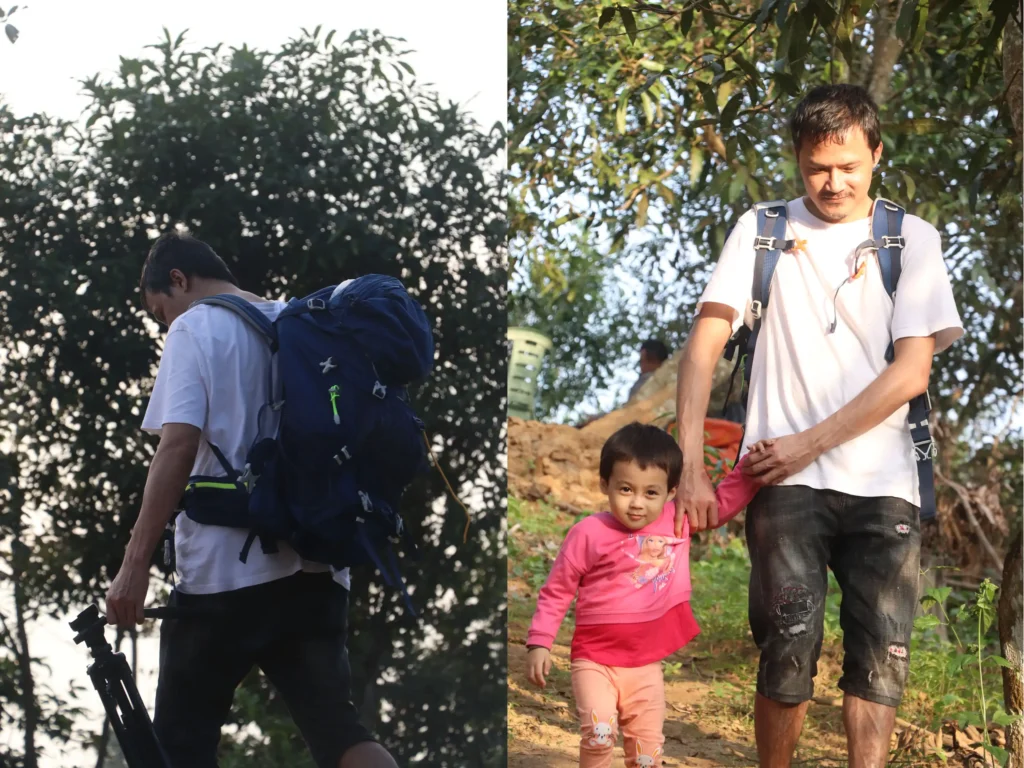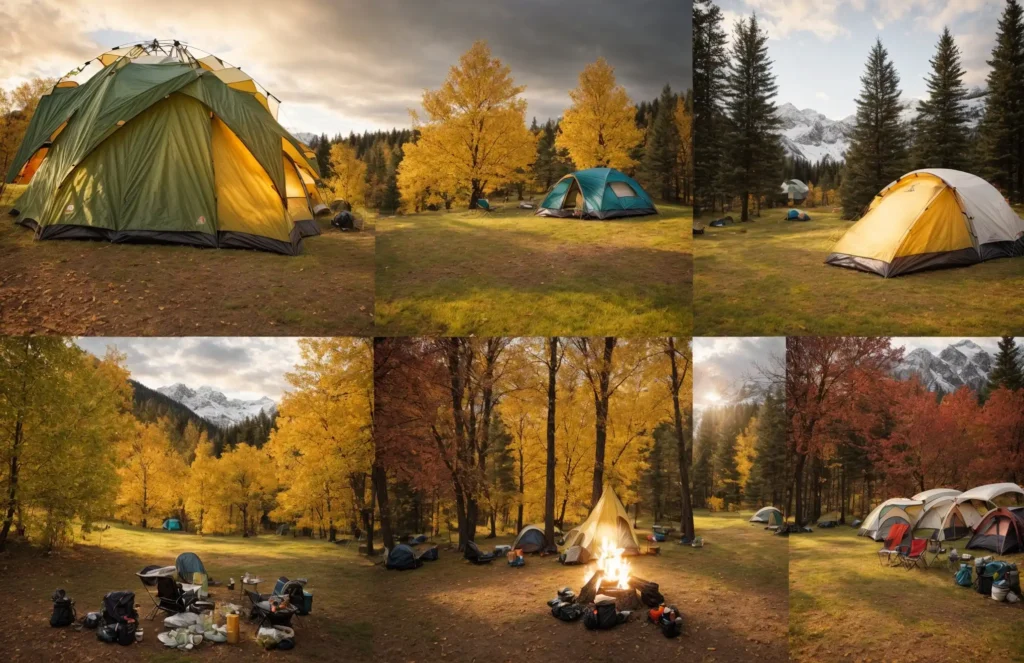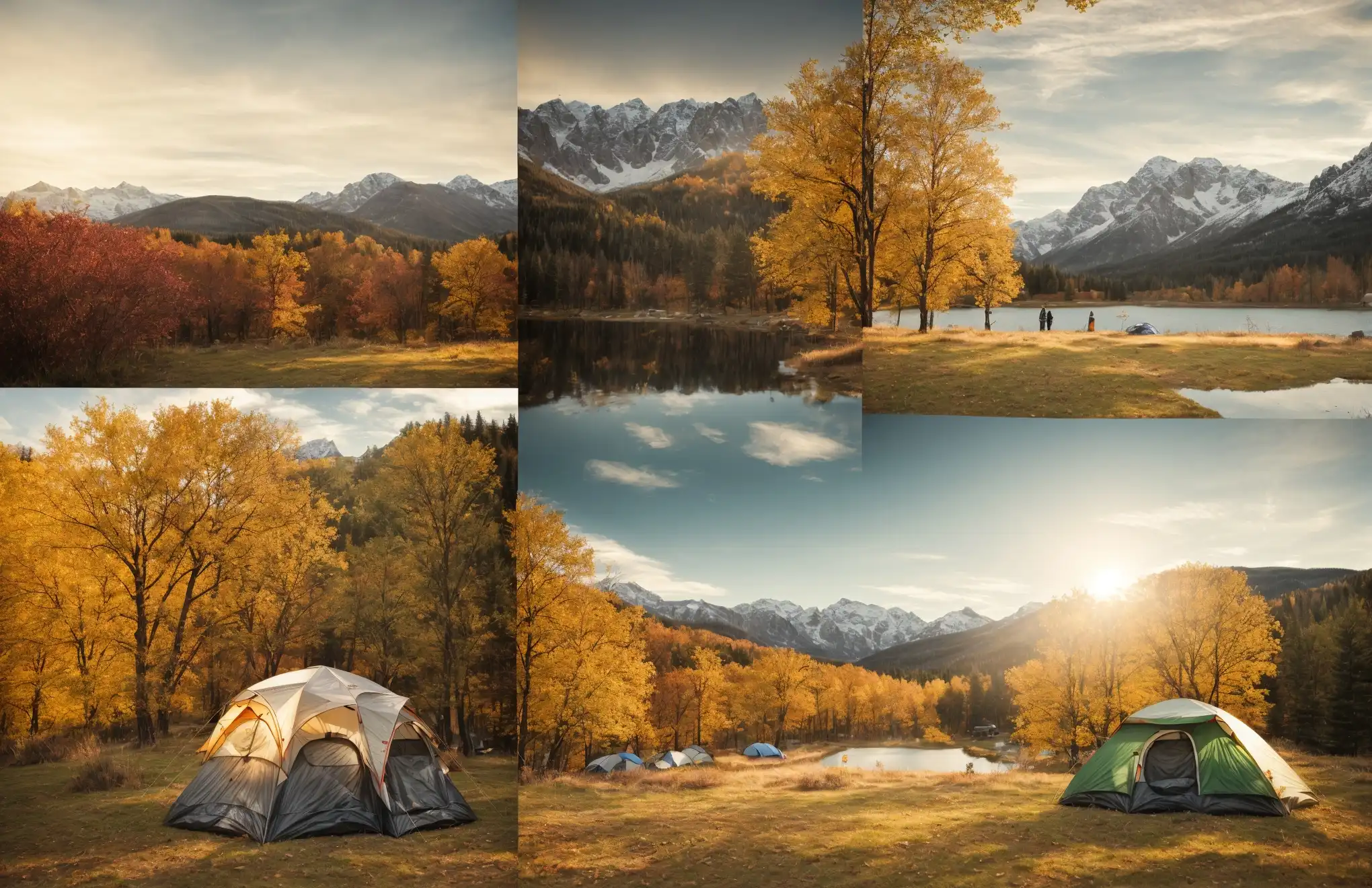Camping season typically starts in late spring, around May, as the weather warms up. It extends through the summer and into early fall, usually winding down by October.
Embracing the great outdoors becomes a cherished activity as temperatures rise, usually signaling the start of camping season. Enthusiasts eagerly await late spring, when the retreat to nature begins, offering a respite from daily routines. The allure of starry nights and the tranquility of nature’s backdrop beckons families, friends, and solo adventurers to campsites across the country.
With the arrival of warmer days and milder nights, campgrounds start to bustle, accommodating an array of tents, RVs, and eager campers. This season stretches generously, allowing numerous opportunities for memories by the campfire, until early fall when the cool breezes slowly usher out the year’s camping delights.

About Camping Season
As the sun stretches its rays and the chill in the air dissipates, nature enthusiasts and adventure seekers alike mark their calendars for the onset of camping season. It’s a time when the great outdoors beckons, promising respite from the daily grind and an opportunity to reconnect with nature. While the specific start of camping season can vary depending on geographical location and personal preferences, the anticipation builds as the environment becomes ripe for exploratory escapades under the stars.
Understanding the Appeal Of Camping
Embracing the wilderness on a camping adventure offers a unique blend of freedom, simplicity, and rejuvenation. Whether unwinding by a crackling fire or trekking through serene trails, camping provides a stark contrast to the fast-paced urban life. It allows individuals to immerse themselves in the tranquility of nature, indulge in recreational activities, and create lasting memories with friends and family. This love for the great outdoors drives a diverse group of people to eagerly await the start of camping season each year.
Factors that Define Camping Seasons
Diverse elements come into play to signal the green light for camping season. Beyond personal readiness, nature itself serves as a guide. Here are some key factors:
- Weather Conditions: A prime determinant, as warmer temperatures and stable weather patterns provide an ideal setting for camping.
- Regional Climate: Different regions experience seasonal changes at varying times, affecting the camping timelines.
- Park and Campsite Openings: The availability of parks and designated camping grounds, which often coincide with favorable weather, marks the official start for many campers.
- School Holidays: The alignment of school breaks with warmer months can often dictate family camping trips.
While the call of the wild remains constant, the inception of camping season adapts to these factors, ensuring a safe and enjoyable experience for everyone involved.

Determining Camping Season By Geography
Determining Camping Season by Geography is essential for outdoor enthusiasts looking to plan their next adventure. Various factors influence the ideal time to set up camp, such as weather patterns, altitude, and flora and fauna activity. A key consideration is the local climate, which dictates not only the best times to camp but also the type of gear and preparations needed. Let’s dive into how different geographies shape camping seasons, ensuring you are prepared for a stellar outdoor experience.
Camping Seasons in Different Climates
Each climate zone offers a unique camping experience, defined by its seasonal changes. Broadly categorized into tropical, temperate, and polar climates, the camping season within each can vastly differ:
- Tropical climates may allow for year-round camping, but the best times are usually the dry season months, when reduced rainfall and humidity make for more comfortable conditions.
- Temperate climates see a more traditional camping season, typically from late spring through early fall, when weather conditions are milder and natural features are at their peak.
- In polar climates, shorter summer months are the only feasible period for camping due to extreme cold and limited accessibility during other times of the year.
Regional Variations in Peak Camping Times
Regional differences can influence peak camping times even within the same climate zone. Proximity to oceans, mountain ranges, and other geographical features can shift the ideal window for outdoor adventures:
| Region | Peak Camping Season |
|---|---|
| Coastal Areas | Early summer to avoid the late-summer heat and humidity. |
| Mountainous Regions | Late summer to early fall to enjoy the foliage and avoid snow. |
| Desert Landscapes | Late fall to early spring to escape extreme heat during the day and cold nights. |
Note the significance of local events and wildlife patterns as well. Migration seasons, blooms, and local festivals can all add to or detract from the camping experience, depending on what you seek from your journey into nature.
The Influence of Weather on Camping
Weather plays a pivotal role in determining the start of the camping season. Avid campers know that the elements can make or break an outdoor adventure. From the comfortable embrace of warm temperatures to the challenges of an unexpected downpour, weather conditions dictate both the enjoyment and the feasibility of a camping trip. Ensuring that you’re well-informed about the forecast can help you decide on the perfect time to pitch your tent.
Understanding the shifts in weather patterns and aligning your camping plans can lead to an optimal outdoor experience.
The Role of Temperature in Camping Comfort
Temperature is a key factor that affects camping comfort significantly. As the days grow longer and temperatures start to climb, campers eagerly await the warmth that signals the start of the season.
- Opt for spring camping when mild temperatures provide a balance between cold nights and pleasant daytimes.
- Summer offers the ideal warm-weather camping, perfect for those looking to enjoy outdoor activities like swimming and hiking.
- For those who prefer solitude and cooler conditions, late autumn presents a serene camping experience with crisp air and fewer crowds.
Meanwhile, those willing to embrace the cold can embark on winter camping adventures, requiring more preparation to ensure safety and warmth.
Dealing With Precipitation: Rainy Vs. Dry Seasons
Precipitation is another crucial consideration that can have significant implications on your camping plans.
| Rainy Season | Dry Season |
|---|---|
| Equip with waterproof gear and tents.Expect muddy trails and potential flooding.Experience the lush, vibrant scenery after rainfalls. | Enjoy easier travel and drier conditions.Prevent forest fires by following campfire guidelines.Plan for hot and potentially harsh sun exposure. |
Choose the dry season for more predictable conditions and easier hiking trails. Yet, embracing the rainy season can reward you with fewer crowds and a unique landscape, lush and full of life after a downpour.
Remember, whatever the season, always come prepared. A successful camping trip is a safe and dry one, no matter the forecast!
Annual Camping Cycles and Holidays
The ritual of camping renews itself with the changing seasons. As nature ebbs and flows, so do the opportunities for outdoor enthusiasts to explore and unwind in the wilderness. Each year, specific cycles and holidays mark the unofficial commencement of the camping season, linked closely with weather patterns, natural landscapes, and cultural traditions.
The timing of popular camping holidays plays a pivotal role in dictating the peak periods for campgrounds and the great outdoors. These holidays not only point to an increase in campground occupancy but also signify the enthusiasm with which families and friends embark on their camping adventures.
- Memorial Day: Often considered the kickoff to the summer camping season.
- Fourth of July: Celebrated with campground festivities and often booked months in advance.
- Labor Day: Marks the end of the high season, with a last surge of campsite occupancy.
While many align their camping schedules with popular holidays, off-peak camping presents a serene alternative. The reduced crowds, cost savings, and unplugged experiences during these times are invaluable for the avid camper.
| Off-Peak Period | Benefits |
|---|---|
| Early Spring | Fresh blooms and fewer insects |
| Late Fall | Crisp air and colourful foliage |
| Winter (for cold-weather camping) | Snow-sport opportunities and tranquil landscapes |
With off-peak camping, adventurers take advantage of stocked campgrounds, abundant wildlife, and unique seasonal activities not available during the busy summer months. These experiences often lead to personal growth, a deeper connection with nature, and a renewed appreciation for tranquility.
Preparing For Camping Season Openings
As the days grow longer and nature bursts back into life, the anticipation for camping season reaches its peak. Unlocking the secrets of the great outdoors starts with proper preparation. Before setting out to embrace the wilderness, ensure that you have all the necessary gear and plans in place. Preparation is the key to a memorable and stress-free camping experience. Consider this your call to action, an invitation to go through your camping checklist, book your favorite campsites early, and manage expectations for a season of adventure under the stars.
Essential Gear Checklist for the Upcoming Season
Embarking on a camping trip requires meticulous planning and packing. The right gear can make the difference between a trip that’s merely good and one that’s truly great. Here’s a comprehensive list of essentials to help you gear up and ensure you’re ready for whatever Mother Nature has in store.
- Tent (with stakes and guylines)
- Sleeping bag suited to the season
- Sleeping pad or air mattress
- Cooking supplies (stove, lighter, cookware)
- Food and water (plus purification tools)
- Clothing tailored to the climate
- First aid kit
- Navigation tools (map, compass, GPS)
- Emergency shelter or additional weather protection
- Headlamp or flashlight (with extra batteries)
- Fire starting kit
- Multi-tool or knife
- Personal hygiene items
- Trash bags to practice Leave No Trace principles
Booking Campsites and Managing Expectations
Securing your campsite well in advance can save you from the disappointment of arriving at a full campground. Popular sites fill up quickly, especially during peak season. To manage your expectations, begin by researching campgrounds and booking as early as possible. Tools like online reservation systems make it easy to secure your spot with just a few clicks.
Remember, each campground has its own ambiance and rules. Be sure to familiarize yourself with them, as well as the local wildlife and climate conditions, to avoid unwelcome surprises. Below is an effective strategy for booking your next camping adventure seamlessly:
- Select your preferred campground and learn about its amenities and rules.
- Choose an ideal campsite based on desired features—proximity to water, seclusion, views.
- Use online booking platforms to check availability and reserve your spot.
- Plan your arrival and departure times in accordance with campsite policies.
- Always have a backup option in case your first choice is not available.
Learn more: What is Sky Camping
Conclusion
Prepping for the great outdoors aligns with the changing seasons. Typically, the camping season sparks to life as spring blossoms. Mark your calendars for late April through September for the best experiences. Remember, nature waits for no one—so gear up and embrace the adventure ahead.
Curious about camping? Dive into our Learning section at Outdoor Awaits and start your outdoor adventure today! Happy camping!
Sukhen is a passionate blogger and traveler who visited many historical places in Bangladesh, Myanmar, India, and Thailand. He’s an avid camper, so he shares his knowledge of camping and wildlife with his readers. He also helps readers plan their own camping trips. To know more, stay connected with Outdoor Awaits.

